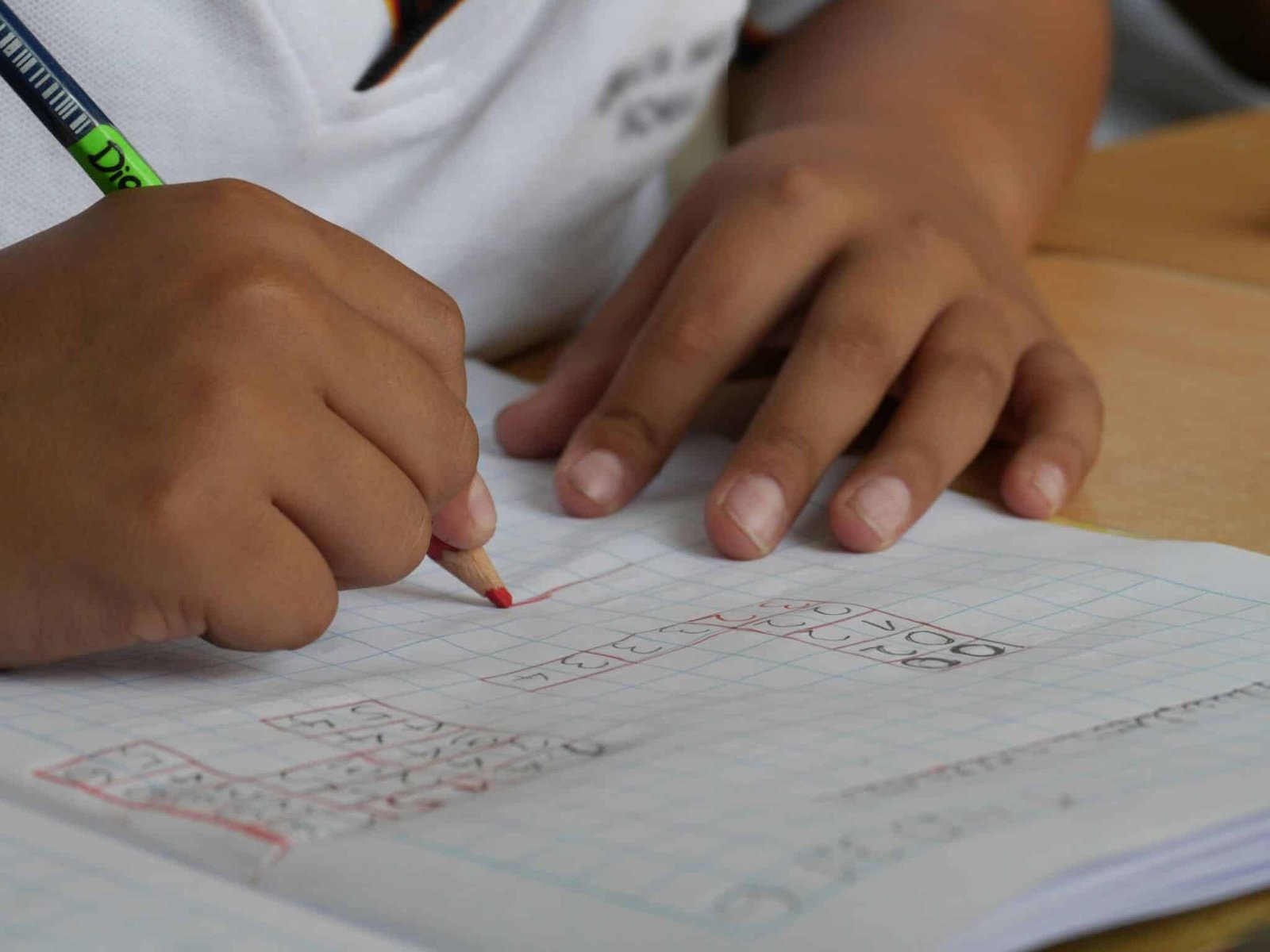Math puzzles for kids encourage participation, teamwork, and critical thinking. Moreover, solving puzzles together helps children develop problem-solving skills while fostering cooperation. Children who engage in challenges inspire curiosity and creativity. As a result, learning becomes fun. Kids build confidence, share ideas, and strengthen logical reasoning in a team. Over time, it prepares them for future academic success.
How are math puzzles for kids beneficial?
Strengthening Problem-Solving Skills
Firstly, parents and teachers can use math puzzles to help children develop logical thinking. The activities encourage kids to break problems into smaller steps. Thus, improving analytical skills. After tackling different challenges, children learn to think critically. Next, they apply reasoning and approach problems creatively. Problem-solving becomes an enjoyable learning experience.
Moreover, consistent exposure to puzzles builds perseverance and adaptability. Also, children learn to analyze mistakes and adjust strategies to find solutions. Therefore, the process enhances their ability to tackle unfamiliar problems confidently. Math puzzles for kids give the participants essential skills. As a result, they benefit in mathematics, science, and every day decision-making.
Boosting Mathematical Confidence
Secondly, math puzzles for kids provide an engaging way to reinforce mathematical concepts. When children solve puzzles successfully, they build confidence in their abilities. As a result, the sense of achievement motivates them to tackle more challenging problems. In short, parents and teachers can use puzzles as a fun learning experience to boost self-esteem.
As children gain confidence, they develop a positive attitude toward mathematics. Over time, they enjoy the subject. In addition, the children benefit from reduced anxiety and enhanced participation in lessons. Moreover, math puzzles for kids foster a growth mindset. In other words, the kids see challenges as opportunities to improve. It encourages confidence through engaging activities. In the end, the children develop a lifelong appreciation for math.
Encourage Creative Thinking
Thirdly, math puzzles challenge kids to think beyond traditional methods. The activities promote practical thinking. However, it encourages different approaches to problem-solving. Also, parents and teachers can introduce puzzles that encourage children to explore multiple solutions. For example, puzzles with whole number fractions promote imaginative thinking.
Children use different strategies. It develops flexibility in the thought processes. As a result, the children tackle complex problems creatively. It encourages creative problem-solving and prepares kids for future challenges. Moreover, the kids develop innovative solutions in different areas. Also, it fosters creativity. In addition, puzzles nurture curiosity and enhance overall cognitive development.
Improving Focus and Patience
In addition, math puzzles for kids require concentration and persistence. As a result, children learn to stay focused on a task, even when facing difficulties. Furthermore, parents and teachers can use puzzles to help kids develop patience. Finally, the children completing a challenging puzzle teaches the value of effort and reinforces the importance of staying determined.
Puzzles strengthen attention span and problem-solving speed. The children work through challenges without giving up. As a result, it benefits them academically and personally. In short, encouraging patience through puzzles helps children develop a mindset that values persistence. Ultimately, it improves their ability to handle complex tasks with confidence.
Making Learning Fun and Engaging
Lastly, math puzzles transform learning into an enjoyable experience. Instead of memorizing formulas, children engage with concepts interactively. Parents and teachers can use puzzles to make lessons more exciting. Thus, capturing children’s interest. A fun approach to learning keeps kids motivated. At the same time, it encourages children to explore mathematical concepts independently.
Moreover, engaging with puzzles fosters a love for learning and exploration. When children associate math with enjoyment, they become more eager to participate in lessons. Therefore, using puzzles as a teaching tool ensures that math remains an exciting subject. In gist, a positive learning environment inspires children to develop strong mathematical skills naturally.
Math Puzzles for Kids 1
Super math puzzles for kids allow them to think creatively and strategically. In other words, it gives problem-solving skills while making learning an engaging and enjoyable experience. Math develops student logic. It builds up the capacity for solving complex challenges. Let’s explore our first math puzzle challenge.
Math Puzzles for Kids 2
Secondly, math puzzles for kids offer a fun and engaging way to improve skills. Puzzles improve their learning routine. At the same time, students can develop a deeper understanding of mathematical concepts. Moreover, it enhances critical thinking and problem-solving skills. They build confidence that will serve them well in school and beyond. Let’s continue with our second lecture on math puzzles. Here, we have 2 puzzles. Let’s see how genius you are at solving them.
| 7 | 3 | 4 | 40 |
| 2 | 5 | 5 | 35 |
| 2 | 4 | 7 | 42 |
| 1 | 3 | 9 | 36 |
First row: (7 +3) x 4 = 40
Second row: (2 +5) x 5 = 50
Third row: (2 +4) * 7 = 42
Last row: (1 +3) * 9 = 36
| 20 | 36 | 26 |
| 44 | 16 | 40 |
| 20 | 4 | 18 |
First row: (20-26) = -6 = (-6)2 = 36
Second row: (44-40) = 4 = (4)2 = 16
Third row: (20-18) = 2 = (2)2 = 4
Math Puzzles for Kids 3
Let’s see who can solve this interesting math problem. Initially, John bought a horse for $2000. John sold it for $2500. Then, John bought it again for $2800. Next, John sold it again for $3100.
How much did John earn by selling the horse?
Step 1: Understanding the Transactions
Foremost, John first bought the horse for $2000 and sold it for $2500. As a result, he made a $500 profit. However, he repurchased it for $2800 and sold it again for $3100. Therefore, to find his total earnings, we need to analyze each transaction carefully. Here is the breakdown
Step 2: Calculating the First Profit
John initially purchased the horse for $2000. When he sold it for $2500, he earned a profit of $500. Therefore, the transaction resulted in a gain that increased his total earnings. So, keep track of each purchase and sale. It will ensure accuracy in calculating the final amount he earned from both transactions.
Step 3: Analyzing the Second Purchase
After selling the horse, John repurchased it for $2800. The expense does not contribute to his earnings. However, it affects his total investment. Therefore, tracking every transaction carefully helps determine the overall profit. Now, we need to examine the final sale to understand how much he gained from the entire process.
Step 4: Calculating the Final Profit
John sold the horse again for $3100 after purchasing it for $2800. Therefore, the sale earned him a profit of $300. Now, we will add the profit to the $500 earned to find his total earnings. Now, understanding each step ensures clarity when solving similar mathematical puzzles in addition to financial problems.
Step 5: Determining the Total Earnings
Finally, we add both profits of $500 from the first sale and $300 from the second. Therefore, John earned a total of $800. Subsequently, we carefully analyze transactions to help solve math puzzles efficiently. Moreover, practicing similar problems improves problem-solving skills. As a result, it helps kids develop a strong foundation in financial reasoning and, also, mathematical thinking.
Math puzzles for kids stimulate the brain
Parents and teachers play a key role in making math exciting. Foremost, math puzzles for kids encourage participation and teamwork. Secondly, critical thinking helps children develop essential skills. Thirdly, use puzzles regularly to create a fun learning environment. With your support, kids will gain confidence. They will enjoy math algebra and its other fields. It will strengthen their problem-solving abilities for future success. Email support@bornomalathebd.com for queries.










